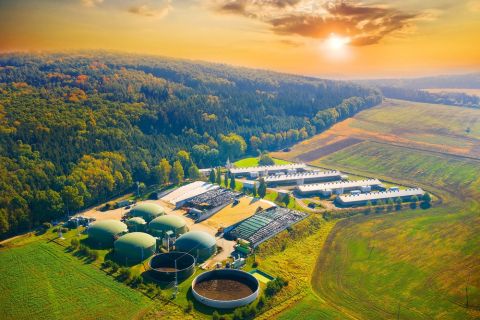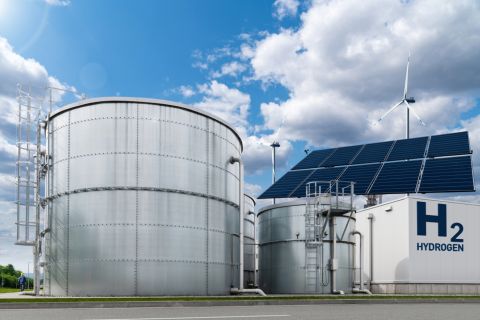Colorado voters on Nov. 6 rejected a measure calling for greater distances between oil and gas drilling and public spaces, a move opponents said would have sharply limited new wells in the fifth-largest oil producing state in the nation.
The measure was defeated in an election that saw oil companies pour millions of dollars into efforts to combat the proposal.
Shares of producers active in the state, including Anadarko Petroleum Corp. (NYSE: APC), Noble Energy Inc. (NYSE: NBL) and Devon Energy Corp. (NYSE: DVN), rose on Nov. 7, retracing some of their double-digit percentage declines since the initiative went on the state's ballot.
Known as Proposition 112, the measure would have mandated at least 2,500 feet (762 m) of separation between new drilling activities and occupied or vulnerable areas. It garnered 43 percent of votes with 91% of precincts reporting, according to data from the Colorado Secretary of State's office. Passage required a majority of votes.
Shares of Anadarko in early trading on Nov. 7 rose 6% to $58.08, Devon gained 2% to $33.58 and Noble Energy climbed 3% to $27.853.
Opponents said the measure would have cost Colorado's economy between $169 billion and $217 billion over 12 years and would have cut state and local tax revenues by $7 billion to $9 billion. Oil production in the state was up 26 percent year-over-year to 477,000 barrels per day, according to the latest U.S. government figures.
"This measure was an extreme proposal that would have had devastating impacts across the state on jobs, education and numerous other programs," said Chip Rimer, a senior vice president at Noble and chairman of the Colorado Oil & Gas Association.
Municipal officials, including Denver Mayor Michael Hancock, urged voters to reject the measure, warning that it would hurt jobs and reduce tax revenues for schools, roads and public safety.
The rejection was another setback for environmentalists who in 2016 failed to get a similar initiative placed on the ballot.
Colorado Rising, an anti-fracking group that helped get the measure on the ballot, was vastly outspent but campaigned door-to-door and used phone and text messages to sway voters.
"The outcome does not change the fact fracking operations are dangerous and should not be happening so close to Colorado homes, schools and drinking water," said Colorado Rising's Russell Mendell. "We will not stop until our Colorado neighborhoods are safe from this dangerous industrial activity."
Ahead of the vote on Nov. 6, energy executives warned passage ultimately could lead them to reduce drilling in the state, although several said they expected no immediate impact.
Recommended Reading
Chevron, Brightmark JV Opens RNG Facility in Arizona
2024-04-10 - Eloy RNG produces RNG using anaerobic digesters at the Caballero Dairy in Arizona, Brightmark said April 10.
Collaboration, not ‘Mythical’ Renewables will Solve Climate Crisis
2024-03-25 - Tinker Energy Associates CEO Scott Tinker is optimistic that a combination of passion, expertise and funding can solve the world’s existential crisis—if the right questions are asked.
Energy Transition in Motion (Week of April 12, 2024)
2024-04-12 - Here is a look at some of this week’s renewable energy news, including a renewable energy milestone for the U.S.
Summit Carbon Solutions, POET Partner on CCS Project
2024-02-07 - The partnership will incorporate POET’s 12 facilities in Iowa and five facilities in South Dakota into Summit’s carbon capture and storage project.
Kraft Heinz, Carlton Power Partner to Develop Green Hydrogen Plant
2024-02-05 - Located at Kraft Heinz’s Kitt Green manufacturing plant in Wigan, Greater Manchester, the proposed $50.1 million plant will have a 20-megawatt capacity.





